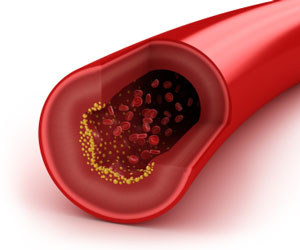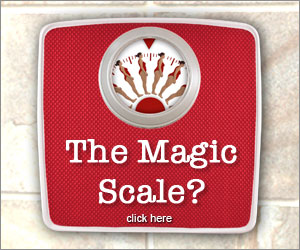
What is a Heart Attack?
A heart attack is an acute ischemia-reperfusion injury to the heart. What does ischemia-reperfusion mean? In essence, the phrase ischemia-reperfusion describes 2 phases of an injury: (vii.7, 224, 228)
- Ischemia is cell and tissue injury caused by restricted blood flow. Lack of blood robs the heart of necessary oxygen and nutrients, and can rapidly kill heart muscle.
- Reperfusion is what happens when blood flow is restored. Although return of blood flow is necessary to survival, it can actually cause more damage. The sudden influx of oxygen triggers an acute inflammatory wound-healing response. If uncontrolled, inflammation can further damage the heart.
Herbal Help for Heart Attacks and Heart Failure
The statistics on heart disease are frightening. Over 15 million people in the United States have coronary artery disease (also known as coronary heart disease). About half as many suffer heart attacks and over half have chest pain because clogged arteries don't supply enough blood to the heart. (vii.224, 225)
Risk Factors
The primary risk factors for heart failure, heart attacks, and stroke are intertwined with those for cardiovascular disease, a precursor for most cases of heart failure: (vii.205, 224, 226-228)
- Atherosclerosis (commonly called clogged arteries).
- Diabetes and insulin resistance.
- Dysfunctional calcium signaling (associated with hypertension).
- Enlargement of the heart.
- Formation of harmful clots that block blood flow.
- Genetics.
- High blood pressure.
- High fibrinogen and/or homocysteine levels.
- Irregular heartbeat.
- Obesity.
- Toxins.
- Unhealthy cholesterol levels.
- Viral infection.
Most heart-related deaths are from chronic heart disease that leads to the heart failing to work properly. Hundreds of thousands of people also die each year from sudden cardiac arrest and strokes. America is not alone — heart failure is a leading cause of death in westernized countries. Despite advances in drug and emergency treatments, these statistics have hardly changed over time. (vii.224, 225, 229)
Reducing the Risk of Heart Attack and Heart Failure
Experts suggest that the key to lowering these heart-stopping statistics is multifold: (vii.225, 226, 229, 230)
- Prevent or treat conditions that contribute to cardiovascular disease (CVD). This includes lifestyle changes such as eating healthier and stopping smoking.
- Slow or stop the progression from to CVD to heart failure, heart attacks, and stroke.
- Help the heart heal better after a heart attack.
Common Thread: Inflammation and the Heart
Targeting inflammation is also on the frontier of heart disease research. Some studies suggest that reducing inflammation and its sources should be the main objective of preventing and treating heart disease. (vii.224, 229)
That's because many of the risk factors for heart disease also cause chronic inflammation. These inflammatory conditions (such as diabetes and hypertension) stimulate enzymes and proteins that create structural changes in blood vessels and heart muscle cells. Structural remodeling can lead to: (vii.224, 226-228)
- Stiffening and thickening of blood vessel walls.
- Enlargement of the heart (cardiac hypertrophy).
- Heart failure.
In fact, inflammation can make a heart attack even worse. (vii.224)
Can Turmeric Help?
With so many risk factors, heart disease is not an easy condition to treat. For example, according to the American Heart Association's 2013 Statistical Update almost ½ of patients treated still have uncontrolled high blood pressure. This is despite the fact that most people with hypertension use combinations of drugs. (vii.224, 225, 230)
Could turmeric improve these outcomes? Mounting evidence suggests that the powerful anti-inflammatory and antioxidant compounds in turmeric could help reduce the risk of heart failure, heart attacks, and strokes. For example, test show turmeric's curcumin compounds further reduce THP-1 macrophages eliminated by ultrasound. These macrophages are the inflammatory cells in artery plaque. They cause atherosclerosis to progress and potentially rupture and cause a heart attack. (vii.22, 106, 225, 230-233)
A Safe and Effective Combination?
Turmeric compounds act in many of the same ways as conventional treatment medication and may even help heart drugs work better. Curcumin could also target inflammatory proteins that heart drugs don't. For example, turmeric's curcumin compounds blocks activation of critical protein involved in gene activity and inflammation that causes an enlarged heart. There are only a few substances that specifically inhibit this protein, and they have difficulty permeating cells. Typically a physical response to heart disease or a heart attack, an enlarged heart can lead to heart failure and even death. (vii.193, 228)
Some of the compounds in turmeric could also counteract the side effects of conventional drugs. For example, folic acid attenuates the tendency of fibrates to raise homocysteine levels. Turmeric and its curcumin compounds also have a strong record of safety. (vii.105, 114, 229, 234, 235)
Join the 1000s of People Who Are Discovering the Benefits of Turmeric.

Healthceuticals® Turmeric Curcumin Complex
100% Certified
Organic ingredients
- Organic Turmeric Extract - standardized to 95% curcuminoids.
- Organic Whole Turmeric - provides full spectrum antioxidant, anti-inflammatory turmeric benefits, including turmerones and numerous vitamins, minerals, and phytonutrients
- Organic Black Pepper Extract - standardized to 95% piperine; dramatically enhances bioavailablity.
- Organic Phospholipids - markedly improve absorption.
- Organic Ginger - works synergistically with turmeric to provide more powerful benefits.
- Absolutely FREE of potentially harmful additives and fillers such as magnesium stearate.




